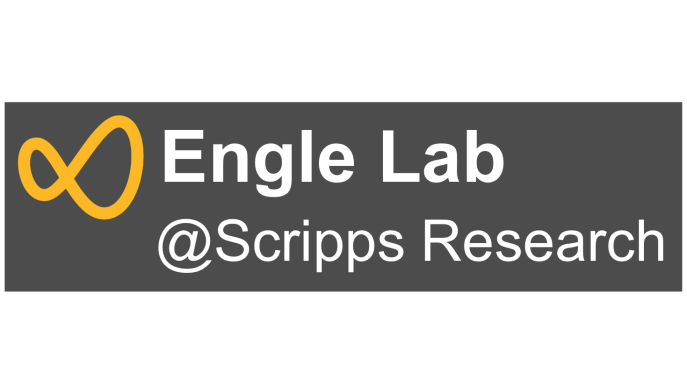Appearing online today in ChemRxiv is a pre-print describing a collaboration with Pfizer’s Oncology Medicinal Chemistry group and with Prof. Peng Liu’s computational organic chemistry lab. With Pfizer, we continue to work together develop new catalytic methods to access strained carbo- and heterocycles. With the Liu group, we team up to study mechanism and ligand effects in catalytic alkene addition chemistry. In the latest story to emerge from these efforts, we report that benzylidene cyclopropanes (BCPs), which can be prepared from benzaldehydes in a single step by Wittig olefination, can undergo pathway-selective hydroboration under the action of a copper-bisphosphine catalyst. Depending on the structure of the phosphine ligand, two divergent product outcomes can be obtained, with the cyclopropane opening via β-carbon elimination or remaining intact. Though Lewis basic heterocycles often inhibit catalysis with late transition metals, this is not the case here, as the tolerance for a wide variety of pyridines, quinolines, etc., is generally excellent. This is makes it well-suited for use in pre-clinical drug discovery and development. Thanks to our collaborators at Pfizer for helping us develop and field-test this method, and to our collaborators in the Liu lab for invaluable insight regarding the role of the ligand in dictating pathway selectivity. For a link to the pre-print, click here.)
Month: June 2019
Welcome Kane!
High school intern, Kane, begins working with mentor Taeho! He’s wasted no time in getting his gloves dirty and running columns and prep TLCs. We’re excited to teach him all about organometallics!
Reductive Heck Review is Online
Our review on palladium(0)-catalyzed reductive Heck coupling of alkenes appears online today in the new Cell Press journal, Trends in Chemistry. Reductive Heck hydroarylation is a rapidly technology that has already found utility in complex molecule synthesis and offers exciting prospects in pharmaceutical development. In 1990 Sandro Cacchi wrote a comprehensive review on this topic (click here), but much has happened in the last 30 years, and as our group has become increasingly interested in this topic, we thought it was time to summarize the state of play to stimulate further interest in this important area. Congrats to Luke and John, and special thanks to Steve and Martin from Bristol-Myers Squibb for their involvement throughout the process, and especially for offering insight into opportunities of reductive Heck coupling in the pharmaceutical industry. For a link to the review article click here.

(not pictured: John)
Hanh graduates and is off to Amgen
Congrats to UC LEADS Scholar Hanh Nguyen has completed her BS in Molecular Synthesis at UCSD and is now off to Thousand Oaks, CA, where she will work as a Process Chemist at Amgen, prior to applying to graduate school to pursue her Ph.D. Hanh is a first-generation college graduate, who previously studied at Santa Ana College prior to transferring to UCSD. In addition to working in the Engle lab under the mentorship of Tanner, Hanh also previously carried out research with Prof. T. Don Tilley at UC Berkeley and Prof. Emmanuel Theodorakis at UCSD. Thanks for your hard work during the past year, and best of luck in your next adventure, Hanh!
2019 Organometallics Class is a Wrap
This week marks the end of the 2019 Scripps Research Organometallics class. Thanks to our stellar group of guest lecturers: Prof. Valerie Schmidt (UCSD), Drs. John Phillips and Adam Johns (Materia), Dr. Martin Eastgate (BMS), Prof. Hans Renata, and Dr. Ryan Patman (Pfizer). Also props to our super-dedicated TAs, Joe Derosa and Tyler St. Denis, whose tireless effort helped make the class a success. In case you missed it, you can find all of the course materials on our website (click here) and the full lecture playlist on YouTube (click here).

Angewandte Chemie International Edition highlights recent Engle lab award
Keary and was recently highlighted in Angew. Chem. Int. Ed. for receiving the 2019 Camille Dreyfus-Teacher Scholar Award along with other awardees. Way to go, boss man! For a link to the write-up, click here.

Carrie moves on to a new position
After 15 years of dedicated service as an Administrative Assistant at Scripps Research, including managing the Engle Lab during its first 4 years of existence, Carrie is heading off to a new adventure with a local startup company, MiNDERA, founded by former Scripps Research faculty member Dr. Tobin Dickerson. Though we are sad to see her go, we wish her the best of luck in the existing next step! Thanks for everything Carrie! You’ll always be a part of the Scripps Research and Engle Lab families!
John receives his PhD and is off to BMS Process
The first student to join the Engle Lab in summer 2015 is the first to graduate and depart for greener pastures. Following a successful these defense back on April 25, 2019, John tied up loose ends during the past month, and is now on a cross-country road trip to New Brunswick, NJ, where he will join the amazing Process Chemistry team at Bristol-Myers Squibb. Thanks for your innumerable contributions to the lab over the past 4 years and many great memories! Congrats Dr. Gurak, we’ll miss you!

Jiahao completes his internship and returns to China
We bid farewell to star undergrad intern Jiahao Chen, who heads back to China this week. Jiahao gave a super wrap-up talk describing his work on directed alkene difunctionalization under the mentorship of Zhen. His research experience in the Engle lab marked his first time gaining exposure to transition metal catalysis research after previous experiences in radical chemistry with Prof. Jie Wu at Fudan University and in total synthesis and medicinal chemistry with Prof. Mingji Dai at Purdue University. Next up: studying for the GRE and getting ready for grad school applications. Thank for your hard work and great attitude, Jiahao! Thanks too to Zhen for great mentorship throughout the spring!

















